Iquitos: The floating capital of the Peruvian Amazon | Iquitos: La capital flotante de la Amazonía peruana [ENG|ESP]
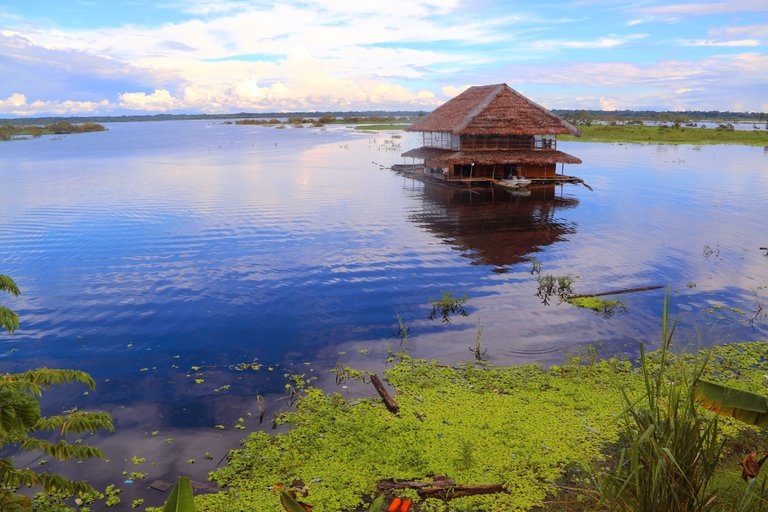
Our location is Northeastern Peru.
Awesome fact about the city of Iquitos: it is the largest isolated city in the entire world! meaning that it is the biggest city located on the mainland and not on an island, that has no access by land -it can only be reached by water or air. The city is spread over 1.213 km2 of land and is home to around 380.000 citizens. It is the greatest metropolis of the entire jungle region of Peru and for that, it is commonly known as the capital of the Peruvian Amazon.
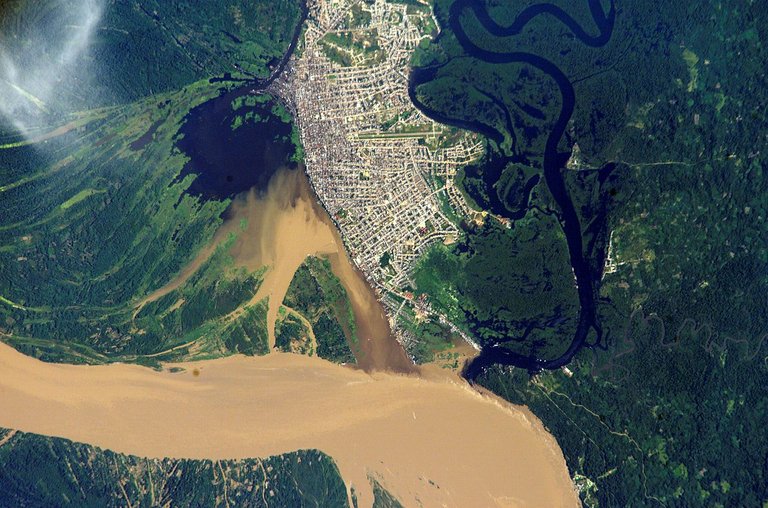
Source: Wikipedia
So let's start exploring this intriguing metropolis!
Strolling around
I begin my urban tour by simply strolling around the city, walking down the streets, in order to get a gist of the place. Backpack & camera certainly give away that I'm very much of a gringa (latin american soubriquet for 'foreigner'). However it's not like a stick out to an excessive extent (as I so often do in my travels!) , and that's because Iquitos teems with gringos! Indeed I had been hearing about Iquitos since the first day I stepped foot in Peru. Numerous travelers, mainly North Americans, choose Iquitos to be their destination. I suppose this is largely due to the fact that there is air connection between Iquitos and Lima, the capital of Peru.
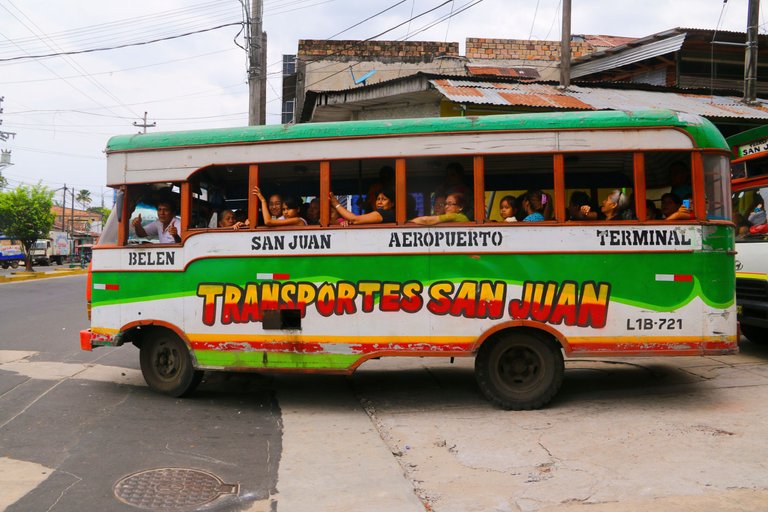
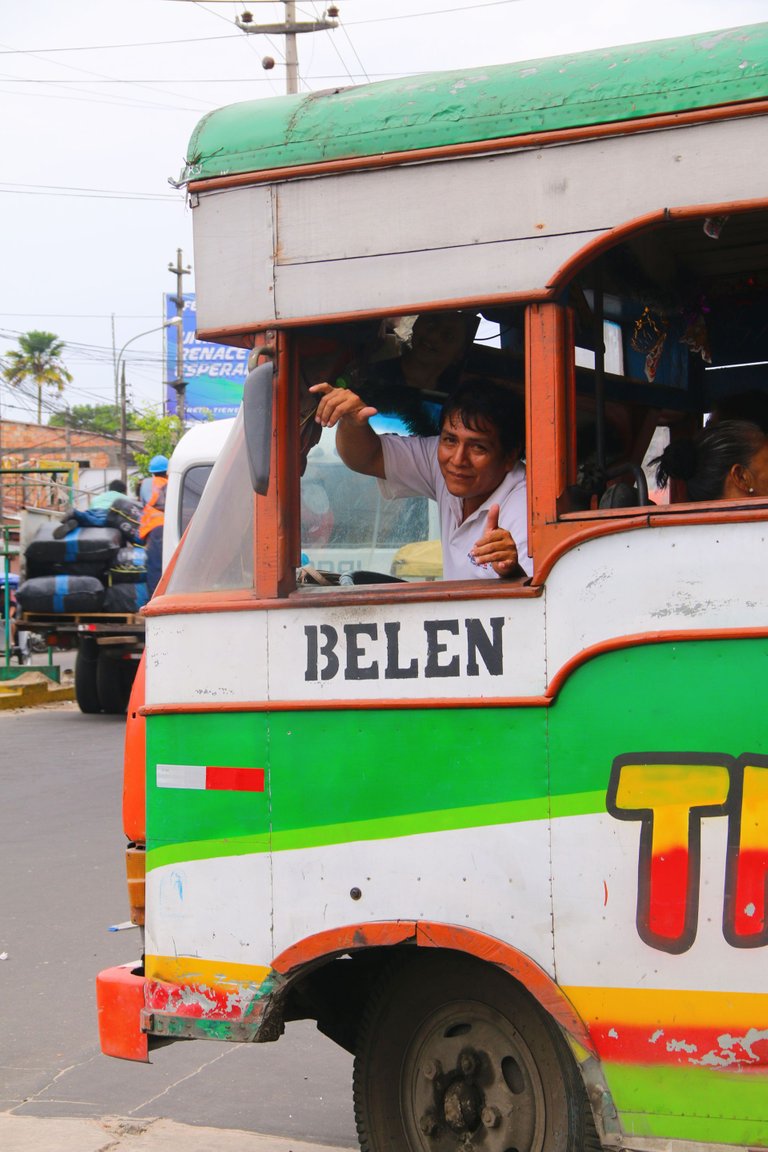
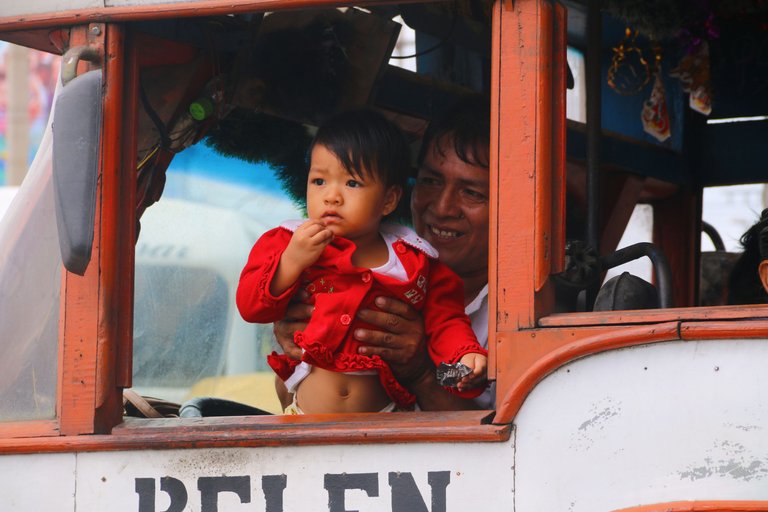
Having no road access makes Iquitos the largest city with no cars! There's some local buses but the main means of transport are the motorbike taxis, known by the name "mototaxis", which are three-wheeled vehicles resembling rickshaws only.. not that fancy!! The mototaxis arrived to various jungle regions of Peru from India in the 80's. As they mainly consist of a motorbike, they're highly manoeuvrable BUT they can't reverse!
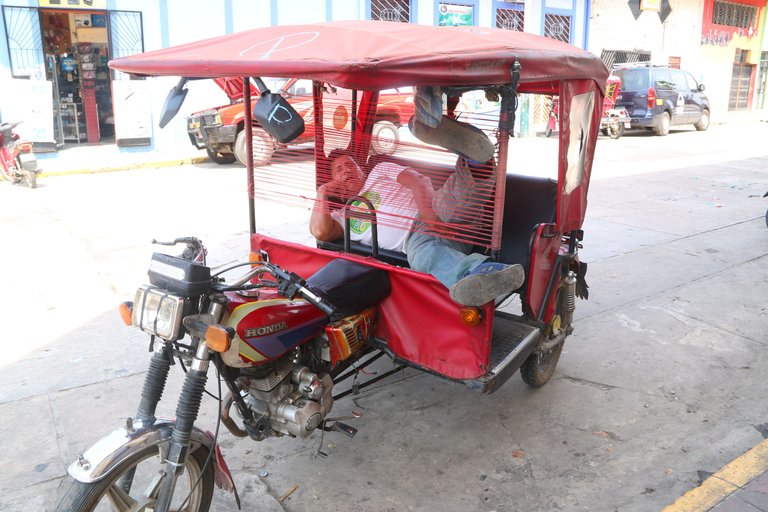
From my first moments in Iquitos, I got this intuition: either you love or you hate this place. There's a lot of things to dislike in Iquitos and about Iquitos, or to feel uncomfortable with; in fact the majority of the city's characteristics are suchlike. Iquitos is plagued by poverty, out of which stem a bunch of other maladies, like criminality, pollution, high disease rates, to mention just a few. Despite all these, or -let me rephrase- , taking into account all these, Iquitos is exactly that: a real place with real people facing real challenges. A walk around the neighbourhoods will certainly impact your state of mind and awaken a variety of emotions , impressions , reflections within. I believe this is the reason why I fell in love with this place: it's like a much needed nudge, like a well deserved slap in the face.
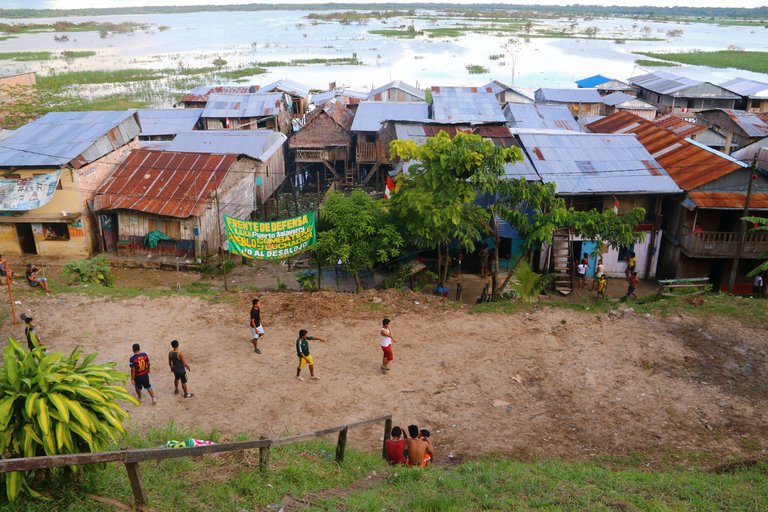
Another thing that makes Iquitos exceptionally special are the contrasts. With tourism being the main industry, the city has undergone a lot of modern and commercial additions, geared towards tourists. At the same time, Iquitos retains its colonial character, hence this place is characterized by a remarkable and rather odd mix between traditional and modern elements.
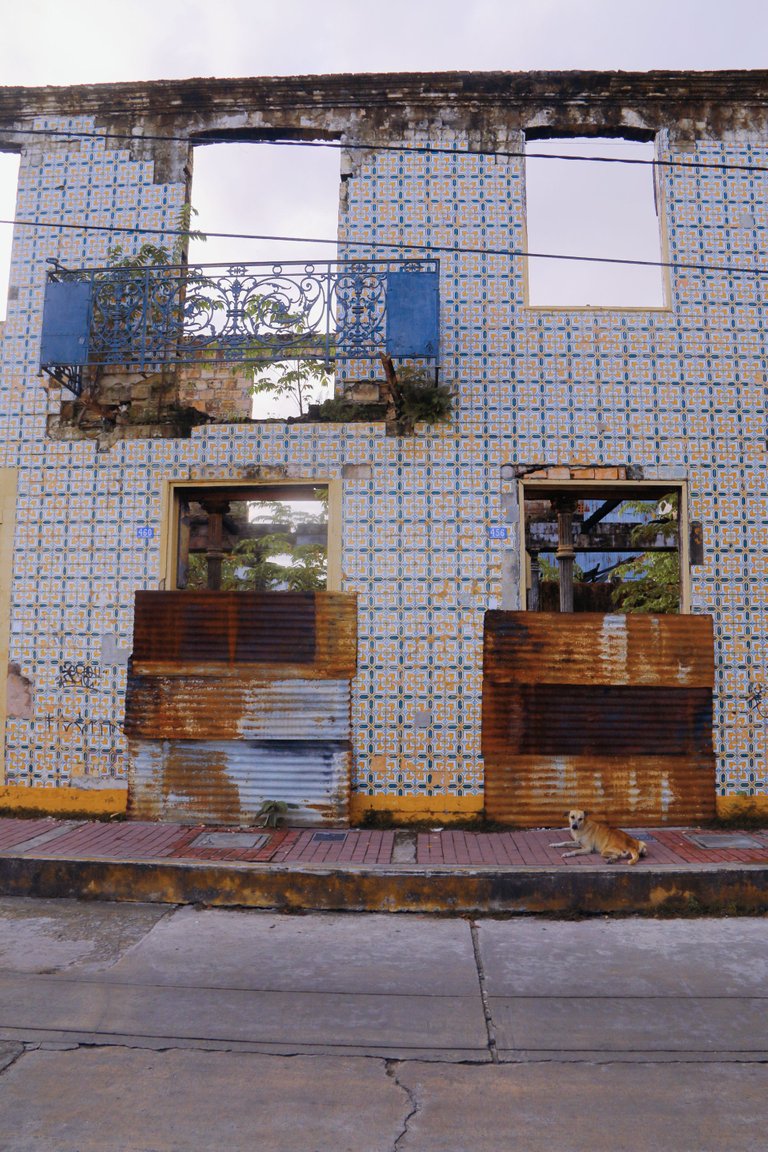
Belén Neighborhood
The most popular part of Iquitos is certainly Belén, a district that's located right in the floodplain of the Itaya River. Belén is home to more than 60.000 people who live in overcrowded conditions, with no clean water nor electricity distribution. Belén is also known as the floating neighborhood as part of it is literally floating on river waters, the depth of which varies depending on the season.
Upper Belén
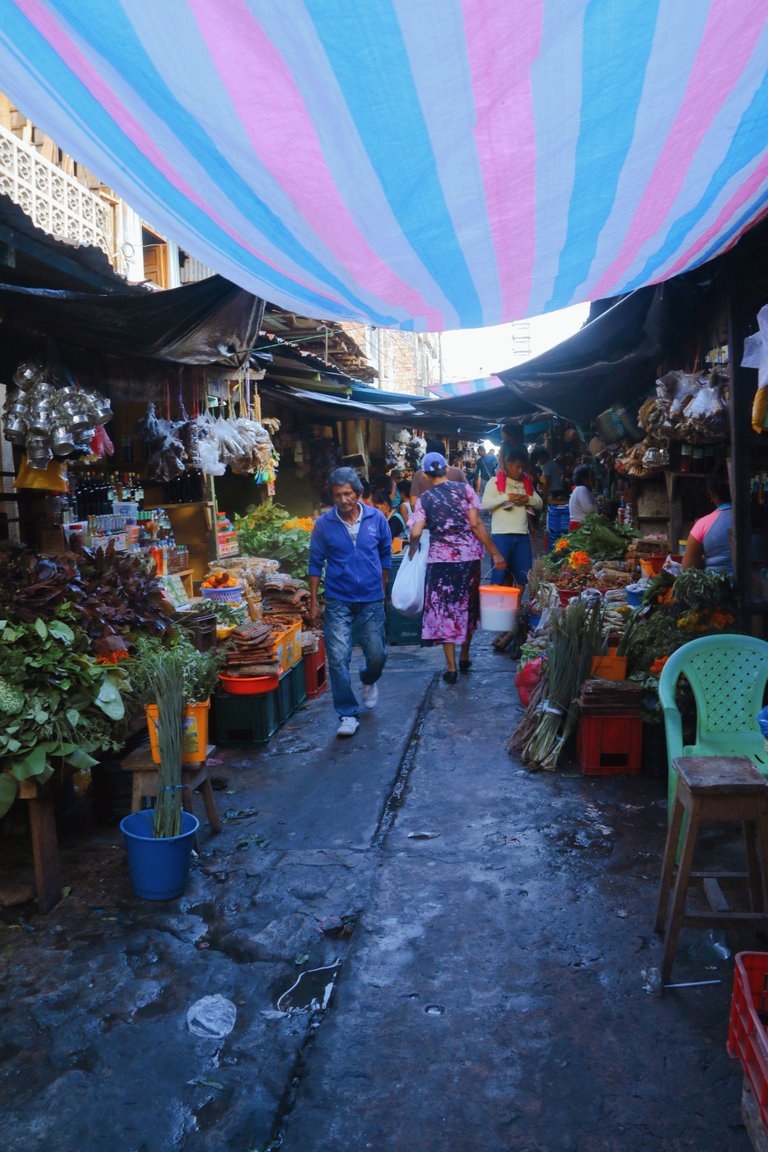
We start with upper Belén where we find a large and sprawling street market, allegedly the most fascinating open-air market in the Amazon.
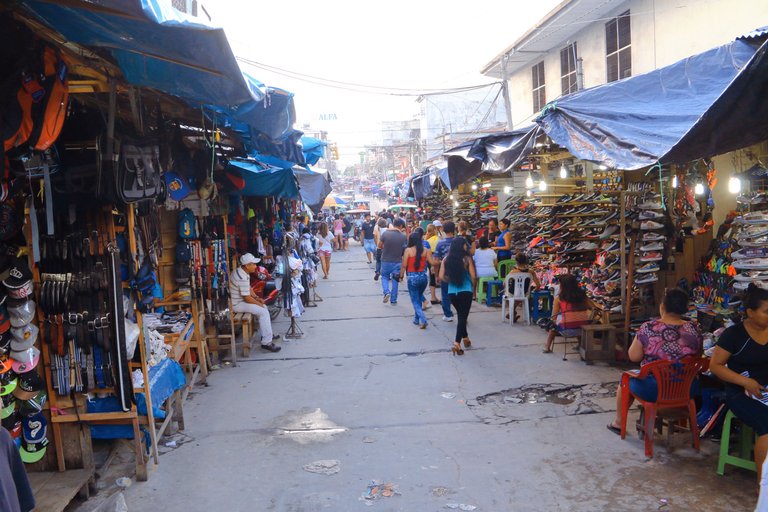
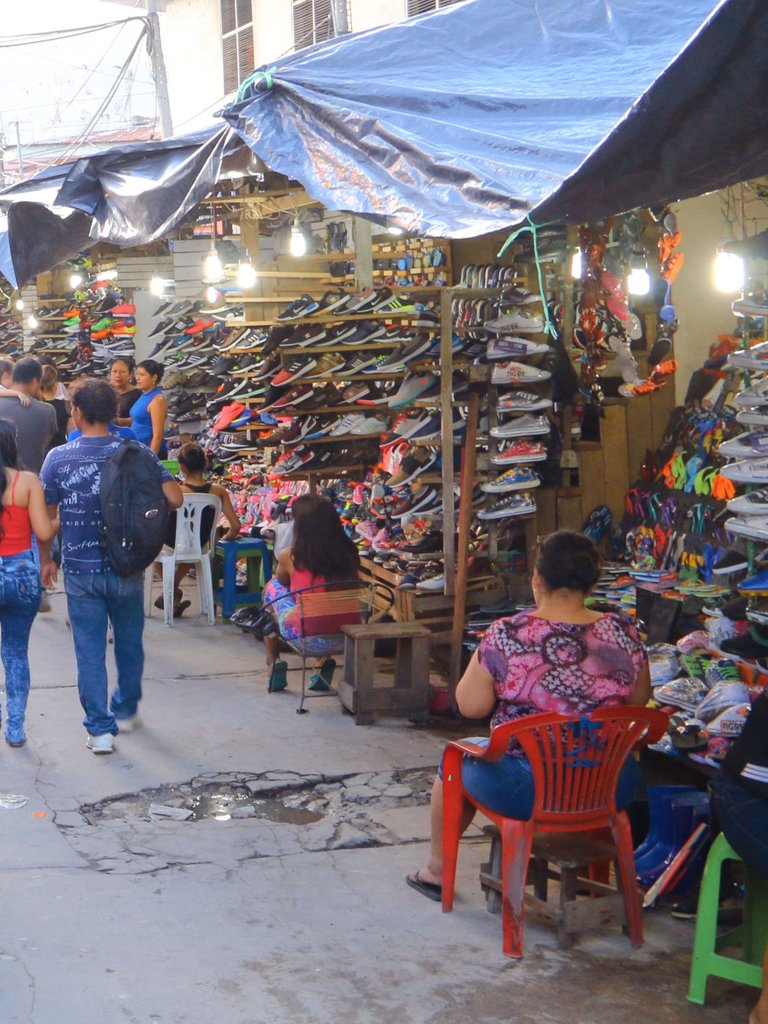
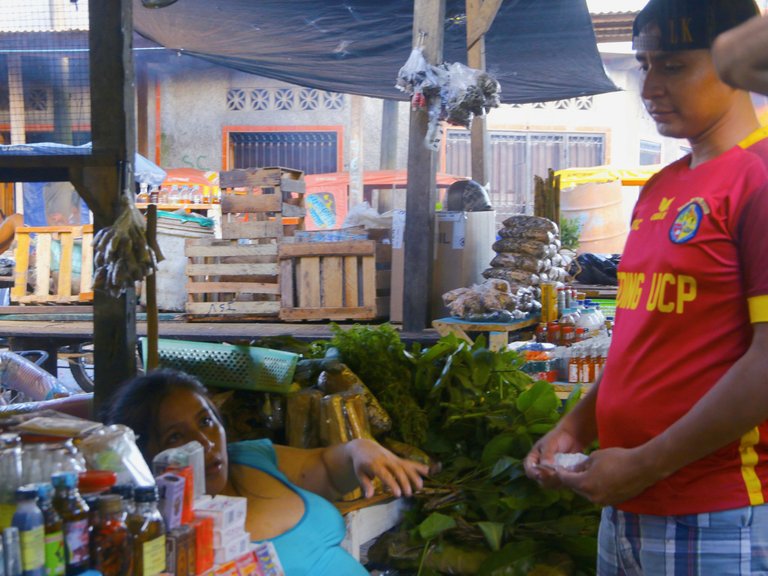
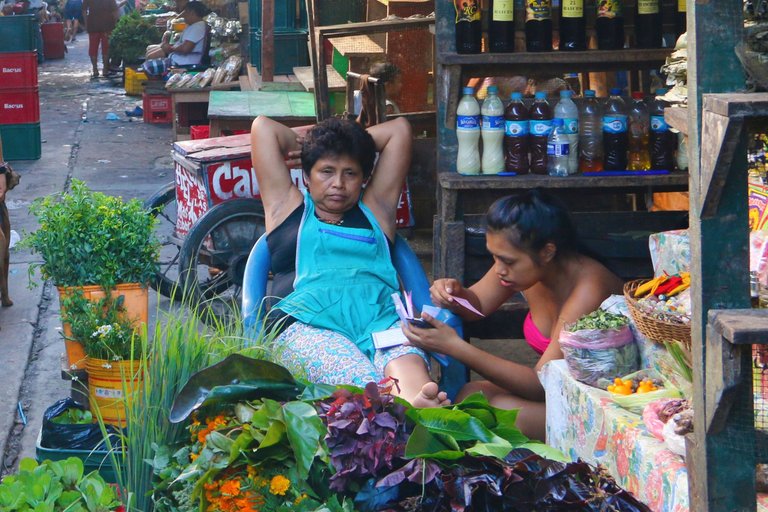
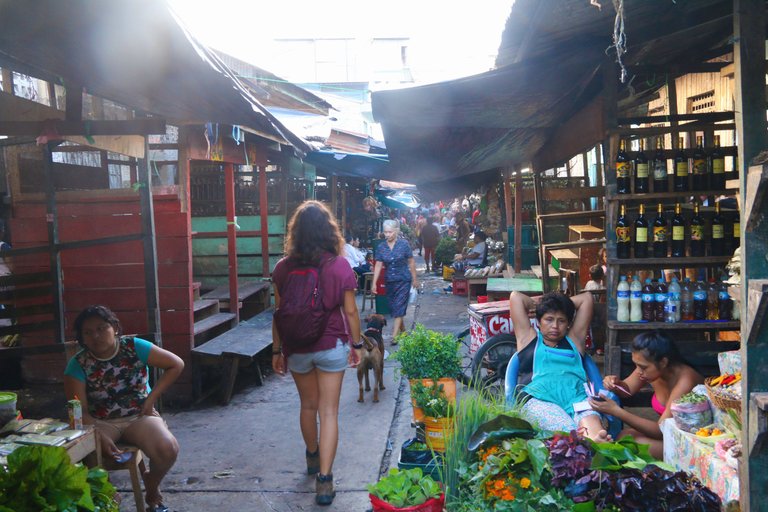
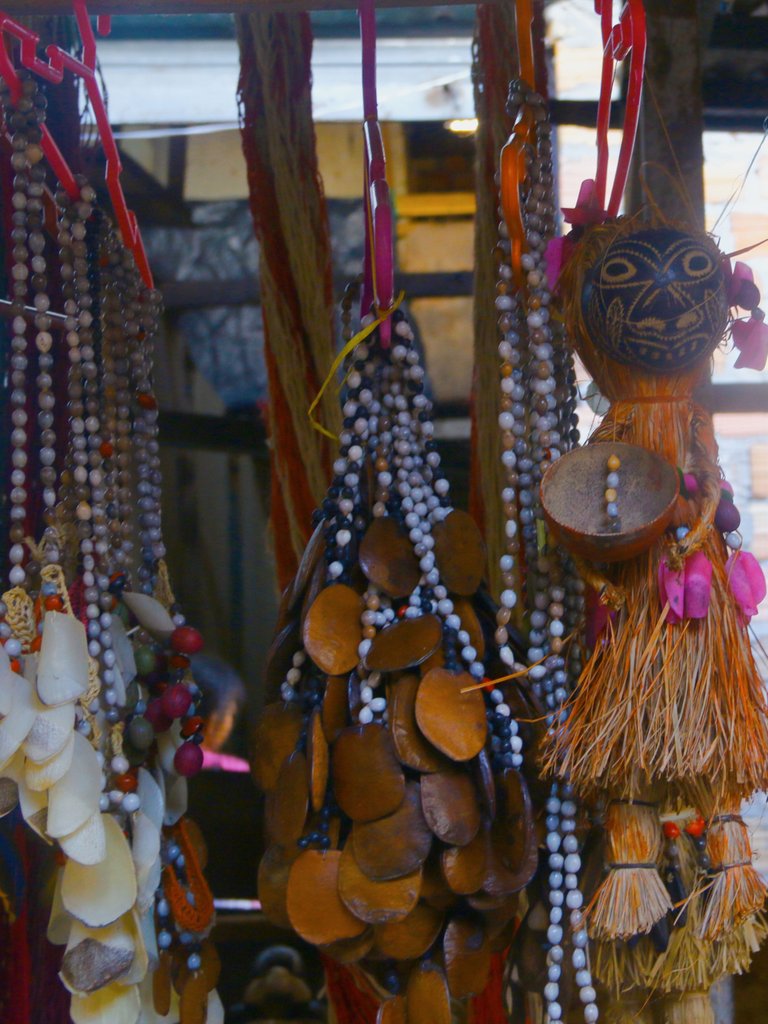
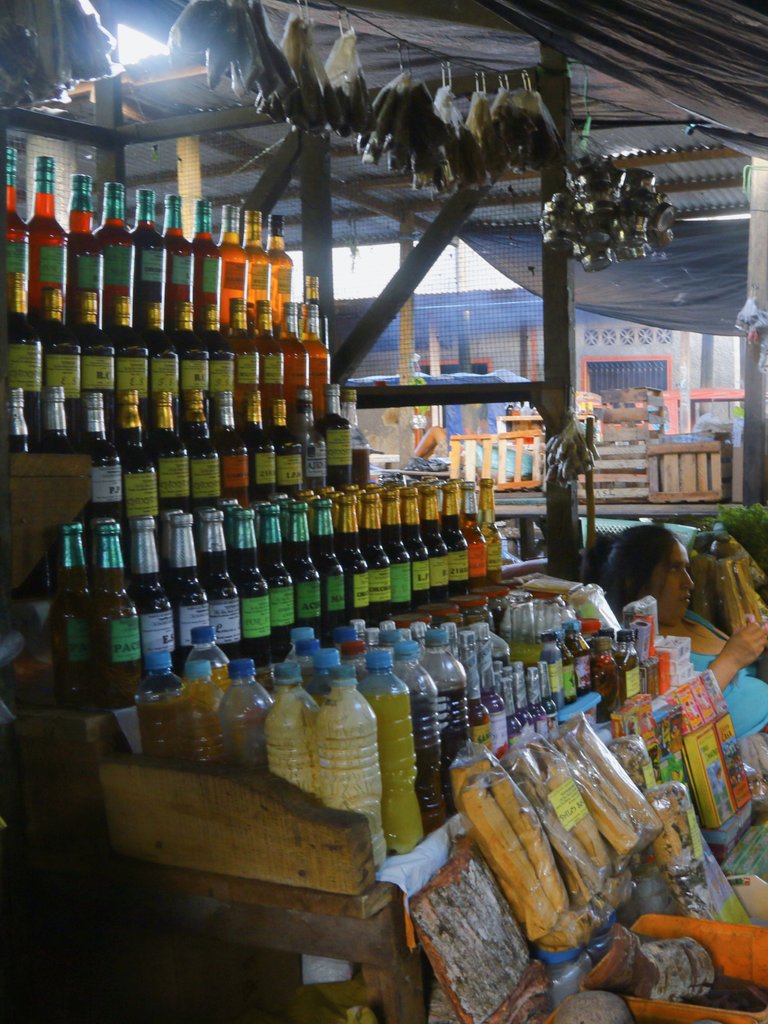
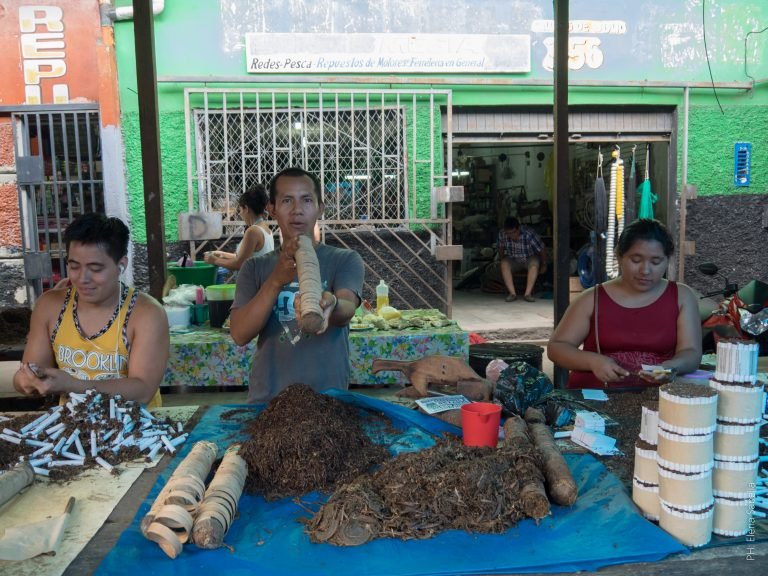
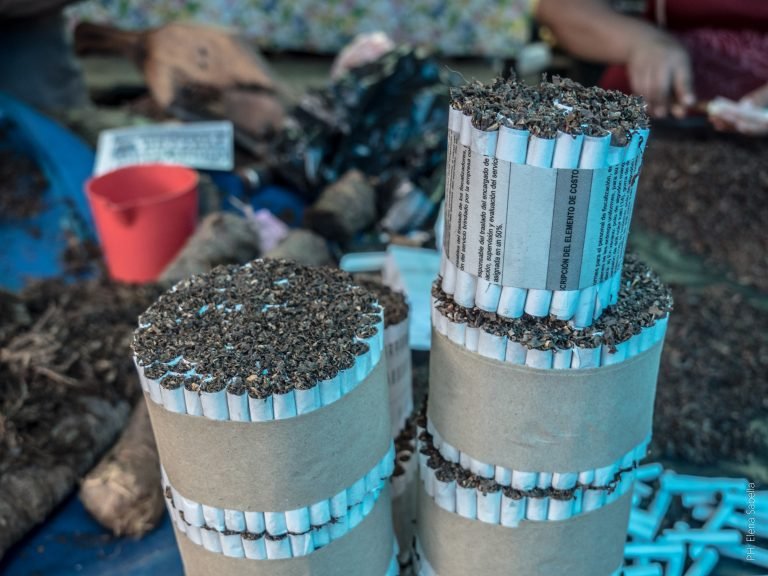
The food market was the largest part of Belén market and unfortunately for me it was greatly unpleasant and shocking to walk through it. Endangered Amazonian fauna is actually sold in this market. I did not have the courage to take pictures of the degutted animals that were neatly arrayed on the counters and therefore the pictures you will be seeing are a kind contribution of my friend Elena.
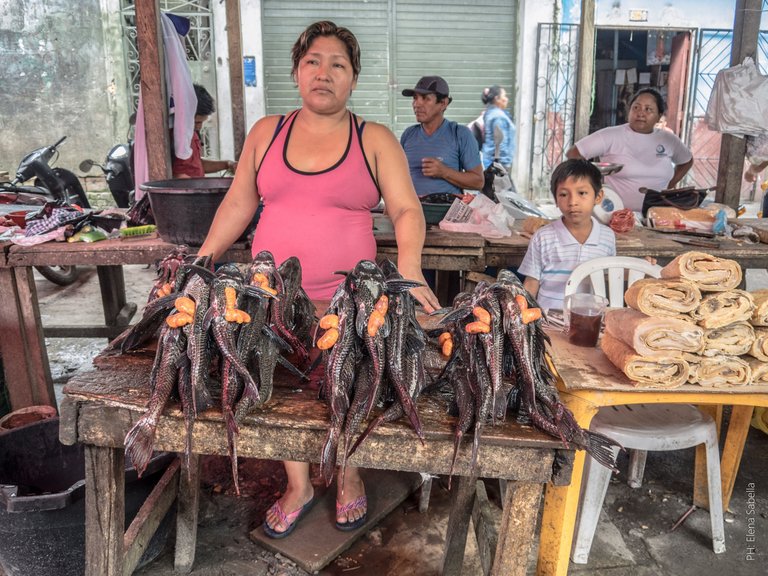
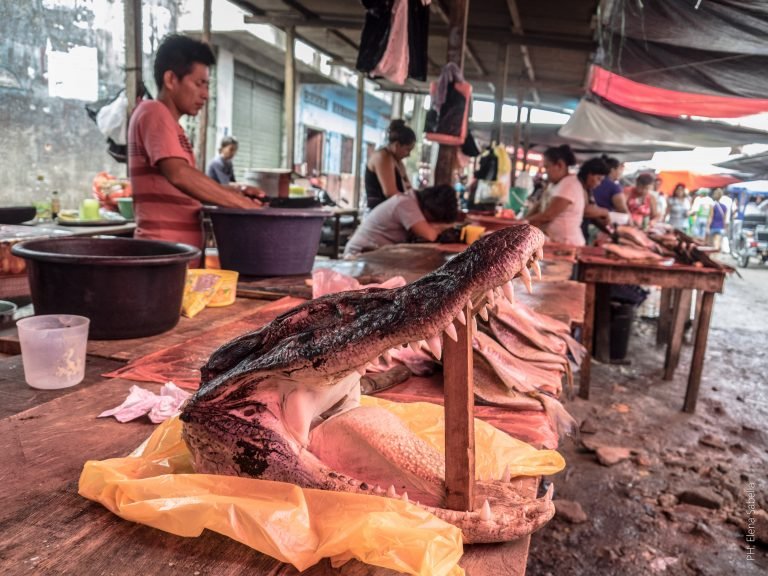
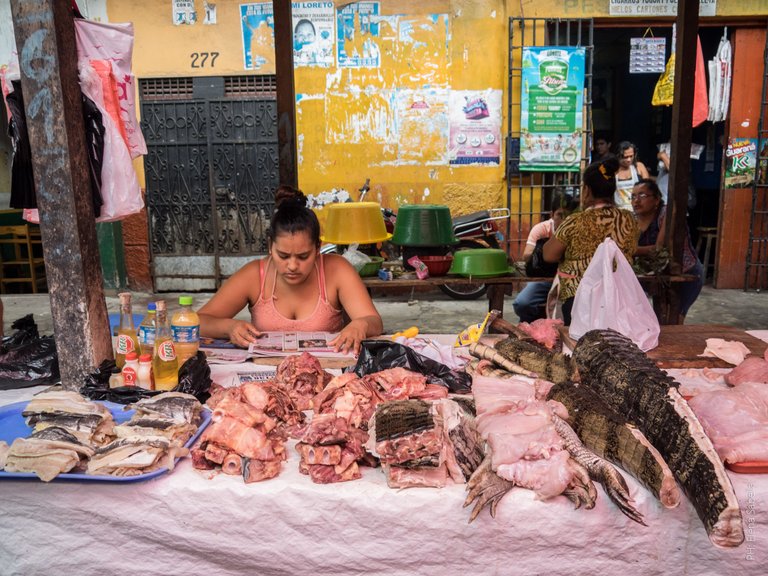
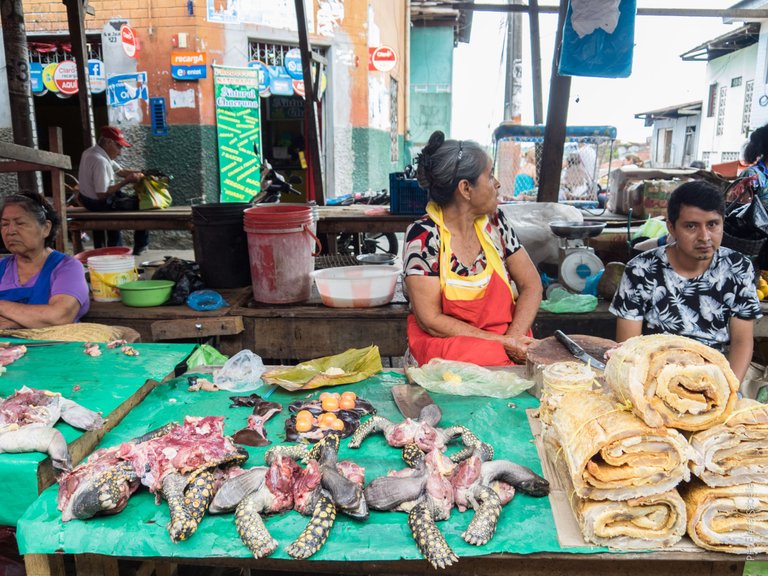
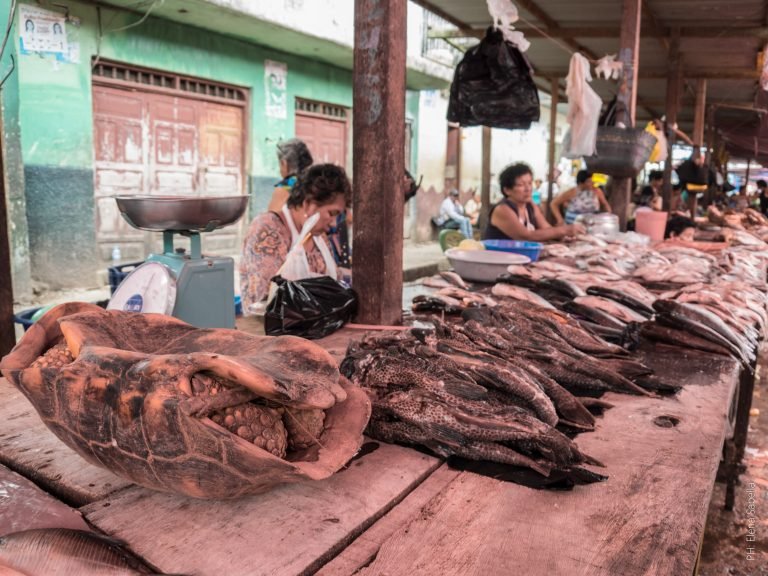
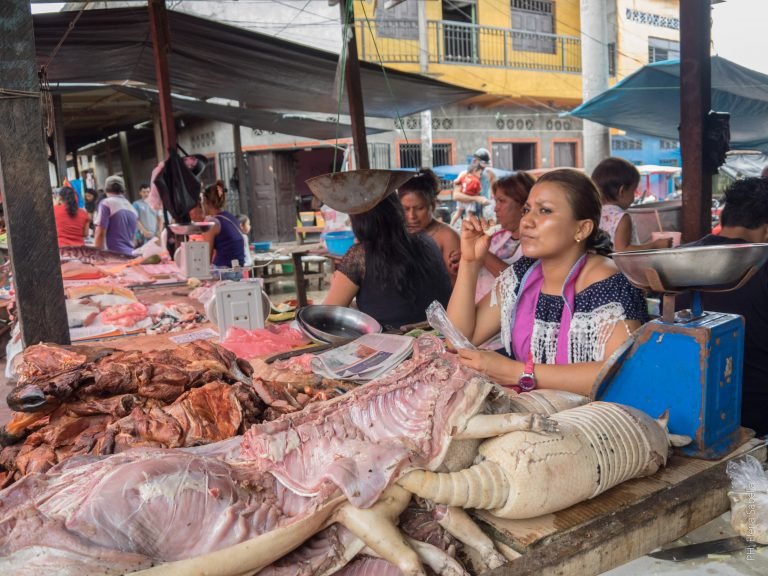
Lower Belén
Lower Belén is basically a shantytown which, depending on the water level of the river, can be found floating on river waters or covered underneath them!
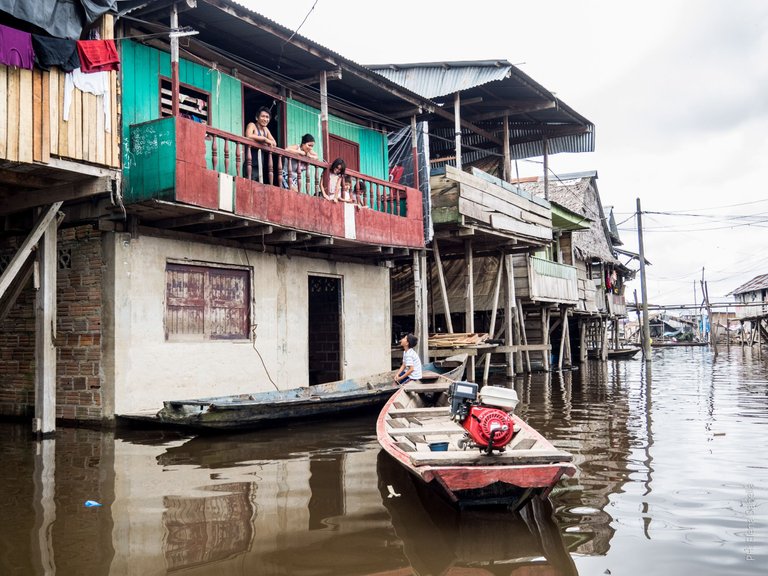
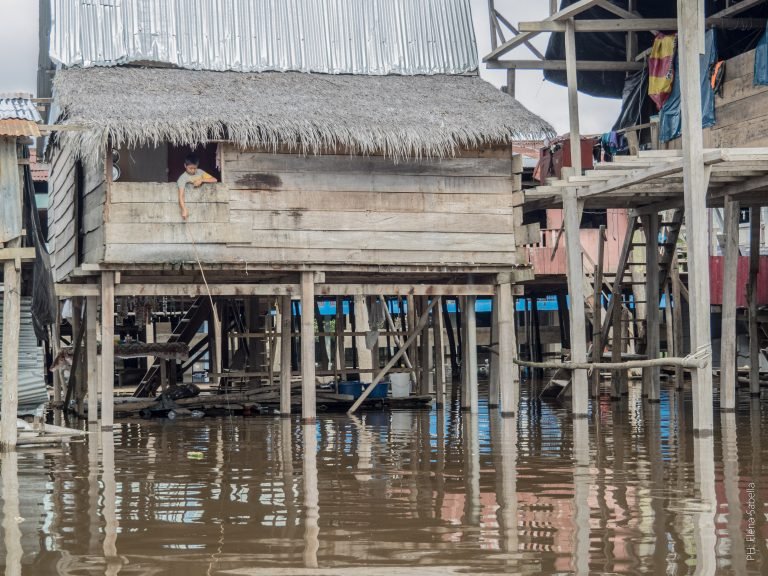
During the months of low water levels, the wooden huts float on the river bed. When the rainy season kicks in, the river water rises past a certain level, and all these homes get flooded.

I was there in the dry season during which the waters recede significantly and as a result the villagers have to endure unhygienic muddy conditions. Sadly, water born diseases are greatly common between the months of July and January.
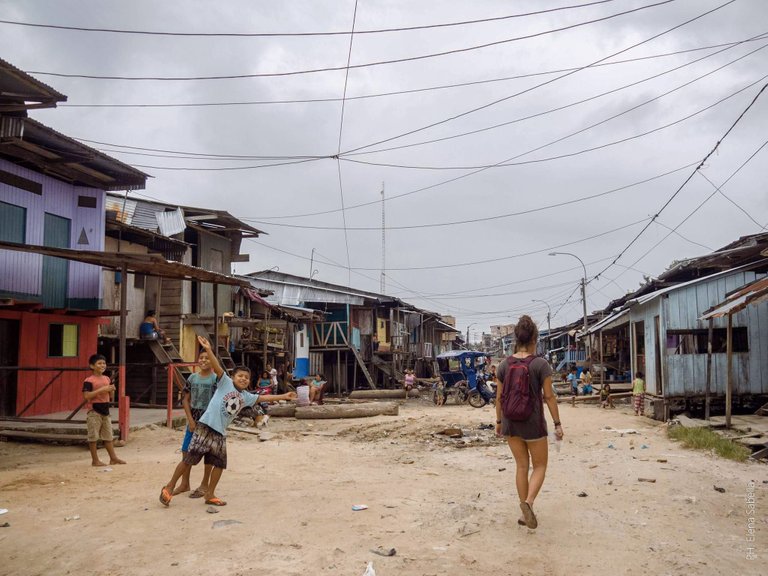
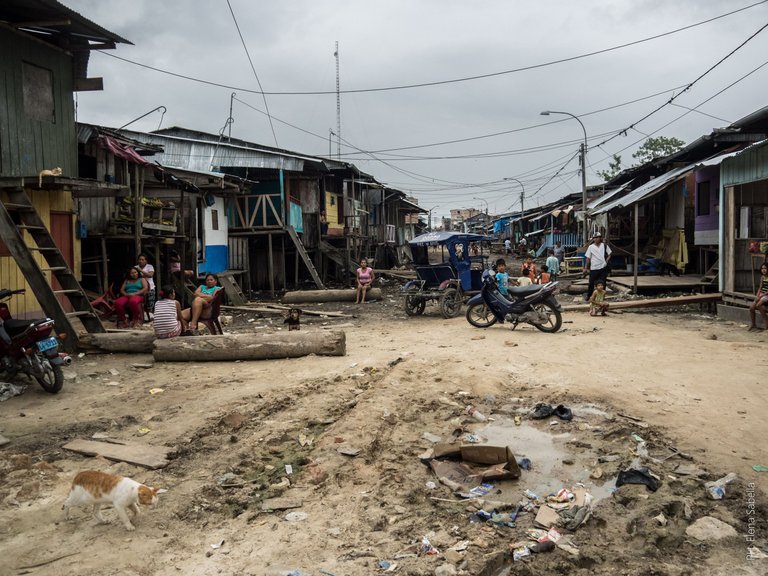
The Abandoned Ship
After having explored the vibrant, loud, smelly, overcrowded neighborhood of Belén, I felt like walking around more quite places. On the outskirts of the city, I came across this grounded rusty ship:
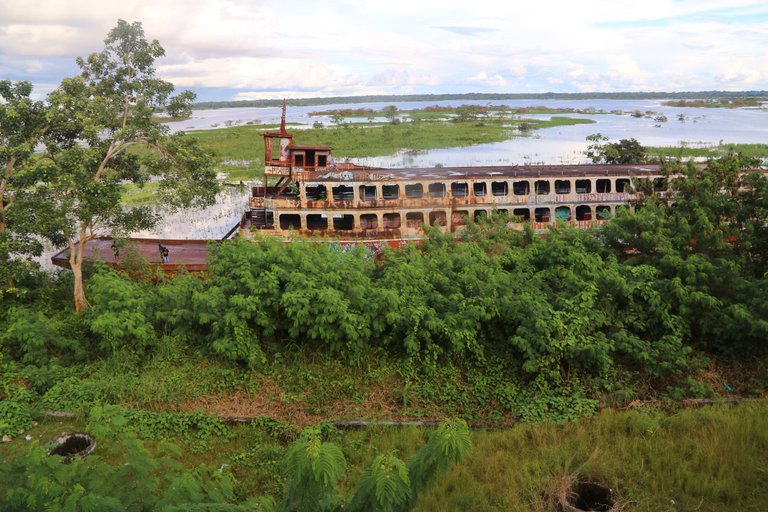
It obviously stimulated my interest and awakened Maria the explorer BUT as I had to look for accommodation for the night, I decided not to prioritise the ship expedition. One thing led to another (as is always the case with travelling!) and I ended up going for the exploration in the dark. Exciting much?!
Graffiti artists found plenty of space to unfold their creativity!
I wish I had some more information about the ship to share with you. But I literally know absolutely nothing myself! How and when did it end up there? Where did it travel from? Was it a cargo ship? All a big mystery!
Goodbye Iquitos
This is it for today, folks. After floating on the river for 5 days, I got rewarded with this astounding metropolis. As a friend said, "In Iquitos, the surreal is real!". Iquitos will always have a special place in my heart and I know with certainty that I will be going back there one day.
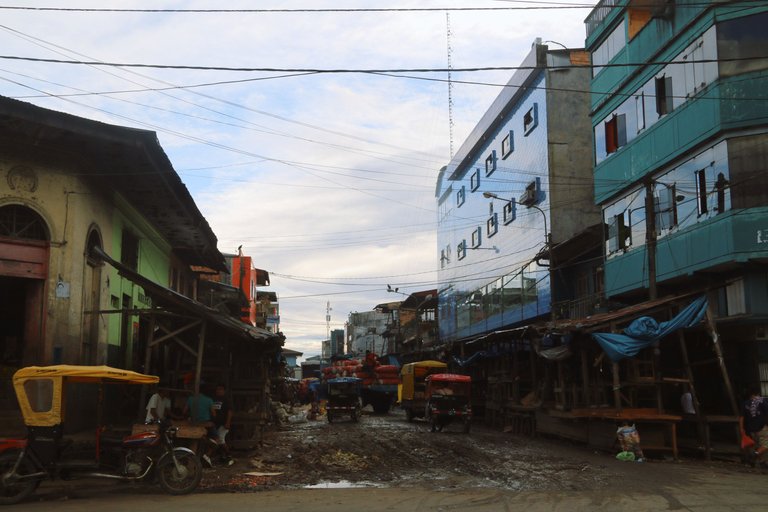
I hope you have enjoyed the tour around Iquitos as much as I enjoyed sharing it with you :)
This is the first time that part of the pictures I'm posting are not my own. Infinite thanks to Elena for her amazing shots (her shots bear her signature).
Español
Hola mis queridos Hivers! Hoy vamos a hacer un recorrido por la famosa metrópolis peruana de nombre Iquitos. Me tomó 5 días llegar allí (viajé en un carguero) y valió absolutamente la pena. Espero que disfruten de este post urbano!

Nuestra ubicación es el noreste de Perú.
Comenzamos con un hecho impresionante sobre la ciudad de Iquitos: es la ciudad aislada más grande del mundo! lo que significa que es la ciudad más grande situada en tierra y no en una isla, que no tiene acceso por tierra - sólo se puede llegar en avión o en barco. La ciudad ocupa una superficie de 1.213 km2 y en ella viven unos 380.000 habitantes. Es la mayor metrópolis de toda la región selvática de Perú y, por ello, se la conoce comúnmente como la capital de la Amazonía peruana.

Fuente: Wikipedia
Vamos a lanzarnos a explorar esta intrigante metrópolis!
Paseando
Empiezo mi recorrido urbano simplemente andando por la ciudad, caminando por las calles, para hacerme una idea del lugar. La mochila y la cámara delatan que soy una gringa (vocablo coloquial que se usa para referirse a los extranjeros). Sin embargo, no es que destaque demasiado (como suelo hacer en mis viajes!), y esto porque Iquitos está lleno de gringos! De hecho, llevaba escuchando sobre Iquitos desde el primer día que llegue a Perú. Numerosos viajeros, sobre todo norteamericanos, eligen Iquitos como su destino. Supongo que esto se debe en gran parte a la conexión aérea entre Iquitos y Lima, la capital de Perú.



Al no tener acceso por carretera, Iquitos es la ciudad más grande sin coches! Hay algunos autobuses locales, pero el principal medio de transporte son los mototaxis, vehículos de tres ruedas parecidos a los rickshaws sólo que.. no son tan elegantes!!! Los mototaxis llegaron a varias regiones selváticas de Perú desde la India en los años 80. Como se componen principalmente de una moto, son muy maniobrables, PERO no pueden dar marcha atrás.

Desde mis primeros momentos en Iquitos, tuve esta intuición: o amas u odias este lugar. Hay muchas cosas que no gustan en Iquitos y sobre Iquitos, o cosas con las que sentirse incómodo; de hecho, la mayoría de las características de la ciudad son de este tipo. Iquitos sufre de pobreza, de la que se derivan un montón de otros males, como la delincuencia, la contaminación, los altos índices de enfermedades, por mencionar sólo algunos. A pesar de todo esto, o -mejor dicho- teniendo en cuenta todo esto, Iquitos es exactamente eso: un lugar real con gente real que se enfrenta a retos reales. Un paseo por los barrios sin duda impactará tu estado psicológico y despertará una variedad de emociones , impresiones , reflexiones en tu interior. Creo que esta es la razón por la que me enamoré de este lugar: es como un empujón muy necesario, como una bofetada en la cara bien merecida.

Otra cosa que hace que Iquitos sea excepcionalmente especial son los contrastes. El turismo es la industria principal, y por lo tanto la ciudad se ha modernizado y comercializado considerablemente, orientándose a los turistas. Al mismo tiempo, Iquitos conserva su carácter colonial, así que este lugar se caracterice por una notable y bastante extraña mezcla entre elementos tradicionales y modernos.

Barrio Belén
La parte más popular de Iquitos es sin duda Belén, un distrito que se encuentra justo en la llanura de inundación del río Itaya. Belén alberga a más de 60.000 personas que viven hacinadas, sin agua potable ni distribución de electricidad. Belén también es conocido como el barrio flotante, ya que parte de él está literalmente flotando sobre las aguas del río, cuya profundidad varía según la estación.
Alto Belén

Empezamos por el alto Belén, donde encontramos un gran mercadillo, según se dice, el mercado callejero más fascinante del Amazonas.









El mercado de alimentos era la parte más grande del mercado de Belén y, por desgracia para mí, fue increíblemente desagradable e impactante pasear por allí. En este mercado se vende fauna silvestre en peligro de extinción. No tuve el coraje de tomar fotos de los animales degutados que estaban exhibidos en los mostradores, y por lo tanto las fotos que verán son una amable contribución de mi amiga Elena.






Bajo Belén
El Bajo Belén es básicamente un poblado de chabolas que, dependiendo del nivel de agua del río, se encuentra flotando sobre las aguas del río o cubierto bajo ellas!


Durante los meses de estiaje, las cabañas de madera flotan en el lecho del río. Cuando empieza la temporada de lluvias, el agua del río sube más allá de cierto nivel y todas estas casas se inundan.

Estuve allí en la estación seca, cuando las aguas bajan mucho y los habitantes tienen que soportar condiciones de barro antihigiénicas. Lamentablemente, las enfermedades transmitidas por el agua son muy comunes entre julio y enero.


El barco abandonado
Después de haber explorado el vibrante, ruidoso, maloliente y superpoblado barrio de Belén, me apetecía pasear por lugares más tranquilos. En las afueras de la ciudad, me encontré con este barco oxidado varado:

Obviamente estimuló mi interés y despertó a Maria la exploradora PERO como tenía que buscar alojamiento para pasar la noche, decidí no dar prioridad a la expedición del barco. Una cosa llevó a la otra (como suele ser con los viajes!) y acabé yendo a explorar el barco en la oscuridad. Guuhuuuuu!
Los grafiteros encontraron mucho espacio para desplegar su creatividad!
Ojalá tuviera más información sobre este barco misterioso para compartirla con ustedes. Pero no sé absolutamente nada de ello!. Cómo y cuándo llegó allí? Desde dónde viajó? Era un carguero? Todo un gran misterio!
Adiós Iquitos
Esto es todo por hoy, amigos. Después de flotar en el río durante 5 días, fuí recompensada con esta asombrosa metrópolis. Como había dicho un amigo, "En Iquitos, lo surreal es real!". Iquitos siempre tendrá un lugar especial en mi corazón y sé con certeza que algún día regresaré.

Espero que hayan disfrutado el recorrido por Iquitos tanto como yo disfruté compartirlo con ustedes :)
Esta es la primera vez que parte de las fotos que utilizo no son mías. Infinitas gracias a Elena por sus increíbles fotos (sus fotos llevan su firma).
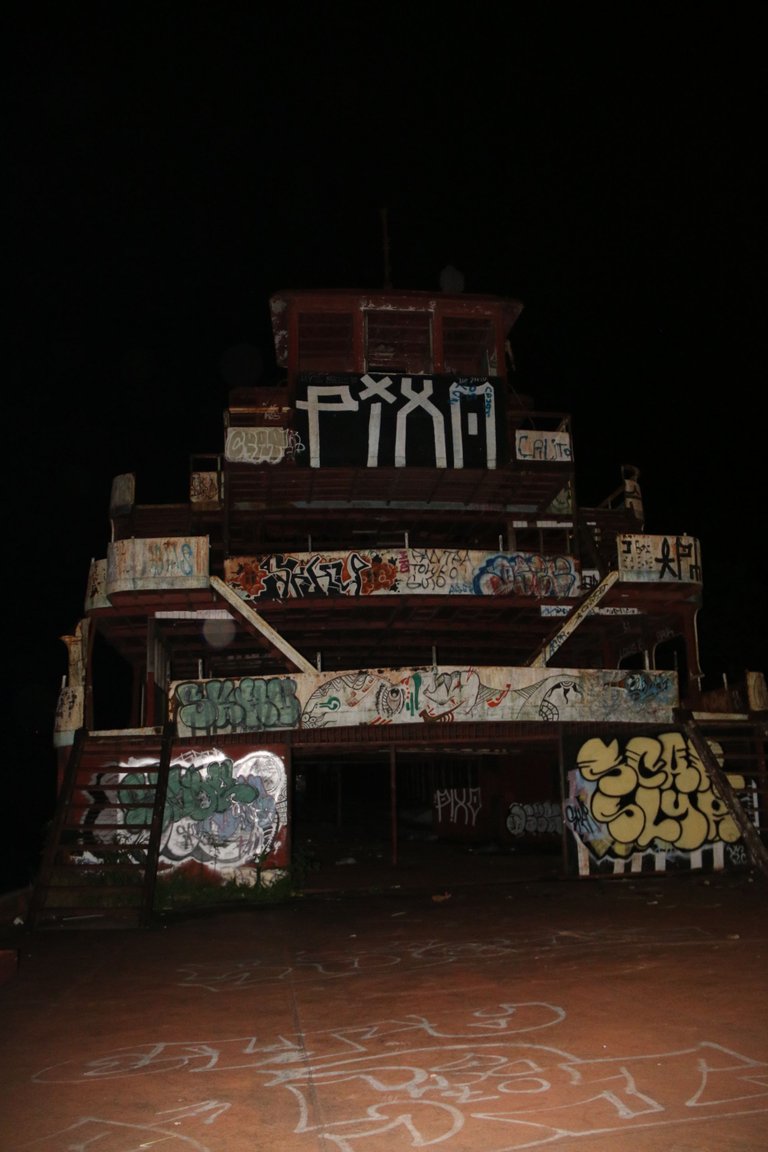
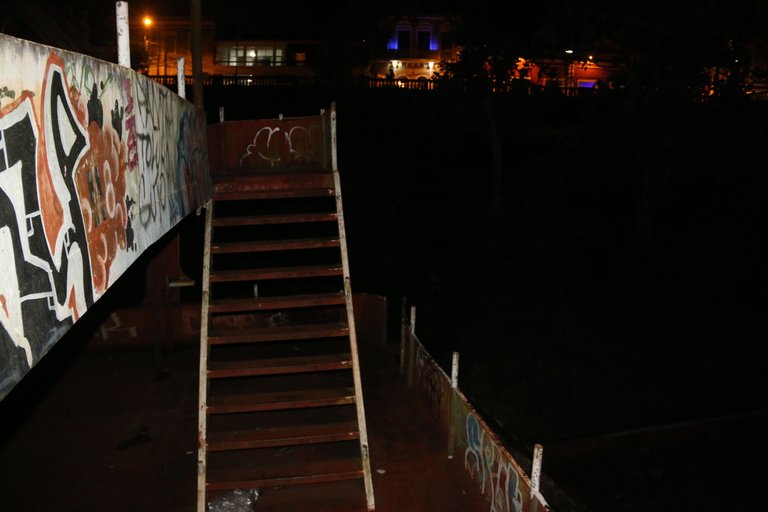
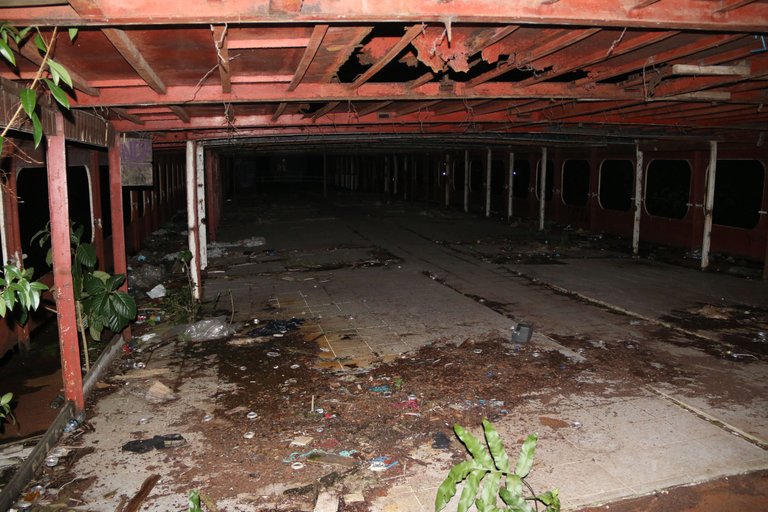
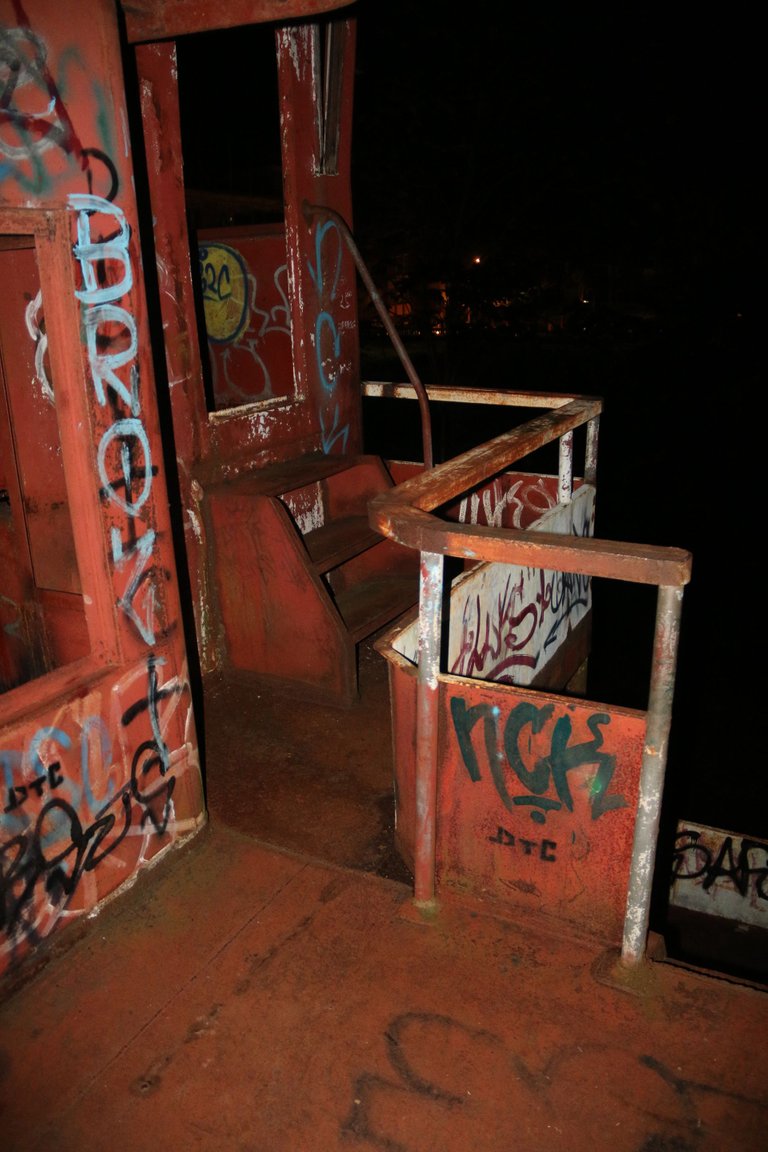
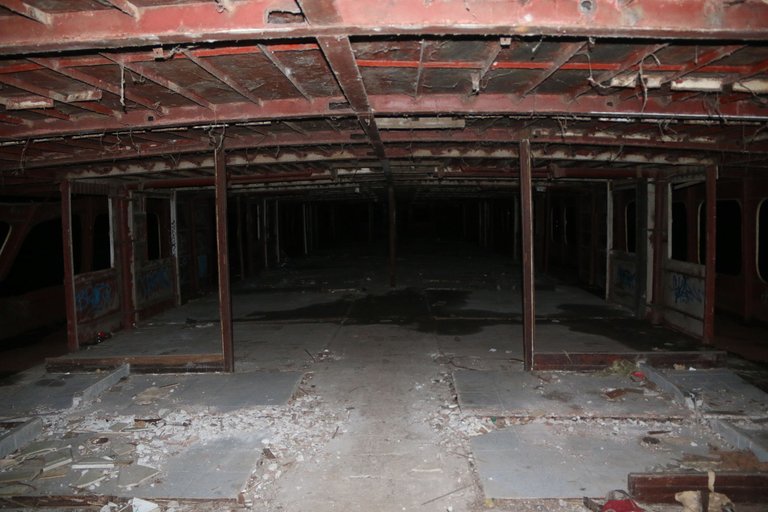
Congratulations, your post has been added to Pinmapple! 🎉🥳🍍
Did you know you have your own profile map?
And every post has their own map too!
Want to have your post on the map too?
This post has been manually curated by @steemflow from Indiaunited community. Join us on our Discord Server.
Do you know that you can earn a passive income by delegating to @indiaunited. We share 100 % of the curation rewards with the delegators.
Here are some handy links for delegations: 100HP, 250HP, 500HP, 1000HP.
Read our latest announcement post to get more information.
Please contribute to the community by upvoting this comment and posts made by @indiaunited.
thank you so very much 🙏
Thank you very much for sharing this article, I literally felt inside the floating capital of the Peruvian Amazon, I could understand the feeling that you wanted to convey with the article and I confess that I was curious to understand the history of the abandoned ship.
Note: you were very brave to take pictures of the ship at night (laughs) thank you for that.
Hi @dulcelara ! Thank you so much for being here and for leaving this comment :) I'm truly glad you enjoyed the post and that you have understood my intention with it. means a lot to me! I'll go back and try to make an investigation on the abandoned ship hehe! Cheers! happy holidays 🌟
Que lugar tan maravilloso , me ha encanto el recorrido y las fotos espectaculares 🤩
hola @recarvajalp , muchas gracias por tu visita y tu comentario! Me alegro que hayas disfrutado del recorrido en Iquitos 😃
Congratulations @marilandia! You have completed the following achievement on the Hive blockchain And have been rewarded with New badge(s)
Your next target is to reach 3250 upvotes.
You can view your badges on your board and compare yourself to others in the Ranking
If you no longer want to receive notifications, reply to this comment with the word
STOPCheck out our last posts:
Support the HiveBuzz project. Vote for our proposal!
Hiya, @lizanomadsoul here, just swinging by to let you know that this post made it into our Top 3 in Daily Travel Digest #1741.
Your post has been manually curated by the @pinmapple team. If you like what we're doing, please drop by to check out all the rest of today's great posts and consider supporting other authors like yourself and us so we can keep the project going!
Become part of our travel community:
What an honour, thank you so very much !
Are those exotic foods? Reminded me of the ones in China black market 😅
Hi @jane1289 ! yes I guess it's very similar to the Chinese black market...